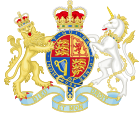- Children and Young Persons (Harmful Publications) Act 1955
-
Children and Young Persons (Harmful Publications) Act 1955 
United Kingdom ParliamentLong title An Act to prevent the dissemination of certain pictorial publications harmful to children and young persons. Statute book chapter c.28 Introduced by Gwilym Lloyd George Territorial extent England and Wales, Scotland, Northern Ireland (in part) Dates Royal Assent 6 May 1955 Commencement 6 June 1955 Status: Current legislation Text of statute as originally enacted Official text of the Children and Young Persons (Harmful Publications) Act 1955 as in force today (including any amendments) within the United Kingdom, from the UK Statute Law Database The Children and Young Persons (Harmful Publications) Act 1955 (c.28) is an Act of Parliament of the United Kingdom Parliament that prohibited comics that were thought to be harmful to children. The Act was introduced by the Home Secretary, Gwilym Lloyd George (a son of former prime minister David Lloyd George), in response to the publication of horror comics which had become popular by the 1950s.[1] This issue was drawn to the attention of Parliament by the National Union of Teachers and by the Archbishop of Canterbury, Geoffrey Fisher.[2]
Contents
Provisions
Section 1 defined the kind of publication which the Act was intended to deal with. It applied to:
"...any book, magazine or other like work which is of a kind likely to fall into the hands of children or young persons and consists wholly or mainly of stories told in pictures (with or without the addition of written matter), being stories portraying—
- (a) the commission of crimes; or
- (b) acts of violence or cruelty; or
- (c) incidents of a repulsive or horrible nature;
"Child or young person" means someone aged under 18.
Section 2(1) made it a criminal offence in England and Wales and Scotland to print, publish, sell or let on hire such a comic, or to possess one for the purpose of selling or letting it. The offence is punishable by imprisonment for up to 4 months or a £1,000 fine (increased from £100 in 1975 (Scotland) and 1982 (England)).
The offence was originally triable before a jury.[3] However it is today a summary offence.
Section 2(2) requires the consent of the Attorney General to prosecute the offence in England and Wales.
Section 3 gives the courts the power to issue search warrants and to order forfeiture of harmful publications.
Section 4, the only section of the Act that applies to Northern Ireland, prohibits the importation of harmful publications into the United Kingdom. The prohibition also applies to "any plate prepared for the purpose of printing copies of any such work and any photographic film prepared for that purpose." Section 4 is the origin of the Royal Mail prohibition against mailing horror comics and the matrices used to print them.[4] To contravene the section is an offence under the Customs and Excise Management Act 1979, punishable with up to 7 years' imprisonment.
Section 5 includes "No provision of this Act, other than the provisions of the last foregoing section, shall extend to Northern Ireland." It also originally included a sunset clause under which the Act was to expire on 31 December 1965, unless Parliament decided otherwise. The Expiring Laws Act 1969 made the Act permanent.[5]
Prosecutions
There were no successful prosecutions under the Act until 1970, when there were two convictions.[6] The Attorney General refused to prosecute in 46 other cases between 1955 and 1982.[7]
References
- ^ Hansard, 22 Feb 1955
- ^ ibid.
- ^ Hansard, 22 Feb 1955: "The fact that the maximum term of imprisonment exceeds three months will automatically give to the accused person a right to elect for trial by jury." (Lloyd George.)
- ^ "Country Conditions for Mailing — Great Britain and Northern Ireland". International Mail Manual Issue 37. United States Postal Service. June 7, 2010 (with revisions through September 9, 2010). http://pe.usps.com/text/Imm/fh_014.htm#ep3576772. Retrieved 2010-10-23.
- ^ "Children And Young Persons (Harmful Publications) Act 1955 (as Revised)". The National Archives. http://www.legislation.gov.uk/ukpga/Eliz2/3-4/28#reference-c620679. Retrieved 2010-10-23. "S. 5(5) repealed by Expiring Laws Act 1969 (c. 61), s. 1"
- ^ Hansard, 5 Dec 1974
- ^ Hansard, 22 Dec 1982
See also
- Obscene Publications Act 1959
- Comics Code Authority (United States)
Categories:- United Kingdom Acts of Parliament 1955
- Censorship in the United Kingdom
- United Kingdom law stubs
Wikimedia Foundation. 2010.
